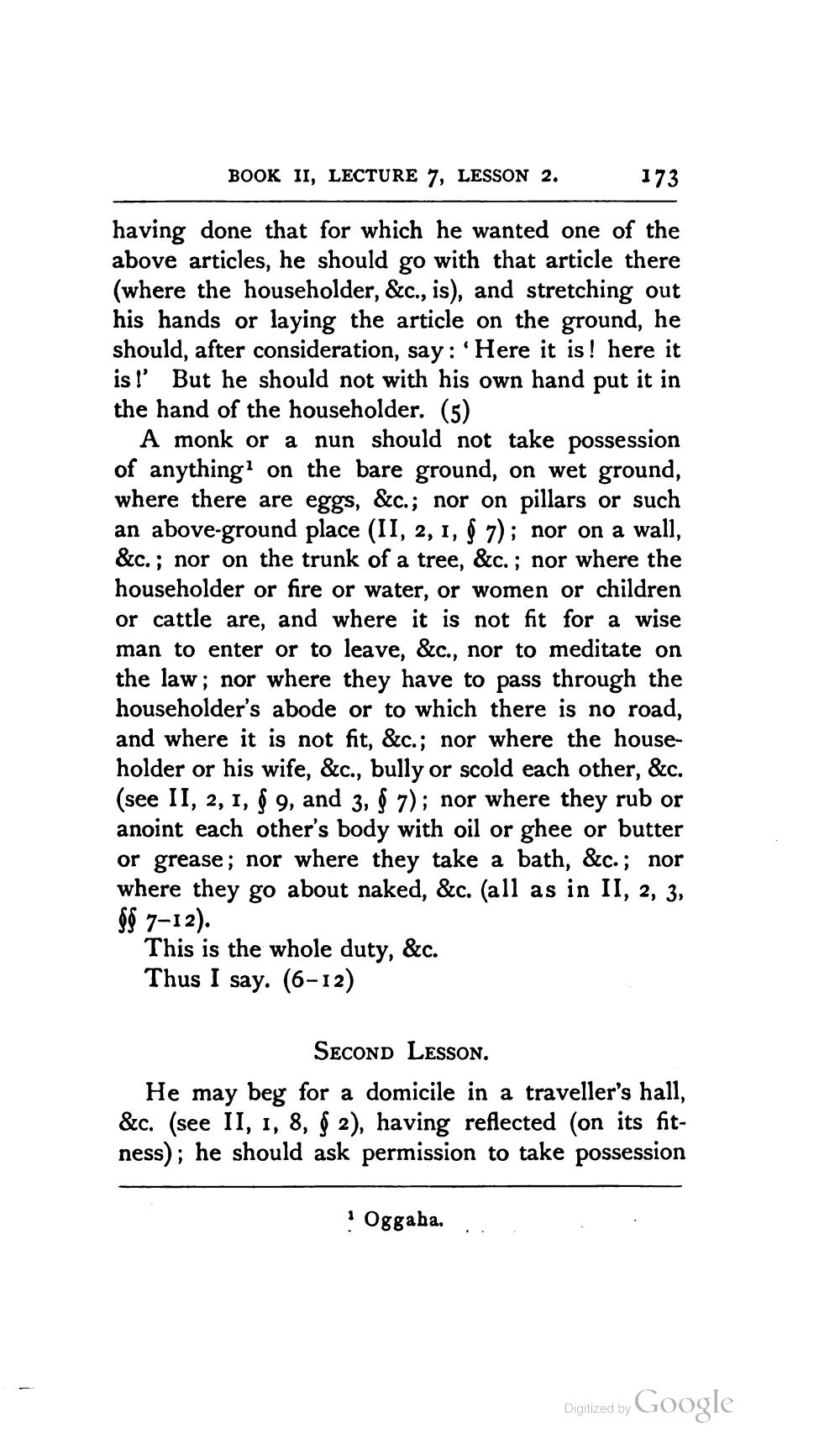________________
BOOK II, LECTURE 7, LESSON 2.
173
having done that for which he wanted one of the above articles, he should go with that article there (where the householder, &c., is), and stretching out his hands or laying the article on the ground, he should, after consideration, say: 'Here it is! here it is!' But he should not with his own hand put it in the hand of the householder. (5)
A monk or a nun should not take possession of anything on the bare ground, on wet ground, where there are eggs, &c.; nor on pillars or such an above-ground place (II, 2, 1, $ 7); nor on a wall, &c.; nor on the trunk of a tree, &c.; nor where the householder or fire or water, or women or children or cattle are, and where it is not fit for a wise man to enter or to leave, &c., nor to meditate on the law; nor where they have to pass through the householder's abode or to which there is no road, and where it is not fit, &c.; nor where the householder or his wife, &c., bully or scold each other, &c. (see II, 2, 1, § 9, and 3, § 7); nor where they rub or anoint each other's body with oil or ghee or butter or grease; nor where they take a bath, &c.; nor where they go about naked, &c. (all as in II, 2, 3, $$ 7–12).
This is the whole duty, &c. Thus I say. (6-12)
SECOND LESSON. He may beg for a domicile in a traveller's hall, &c. (see II, 1, 8, § 2), having reflected (on its fitness); he should ask permission to take possession
! Oggaha. ...
.
Digitized by Google




